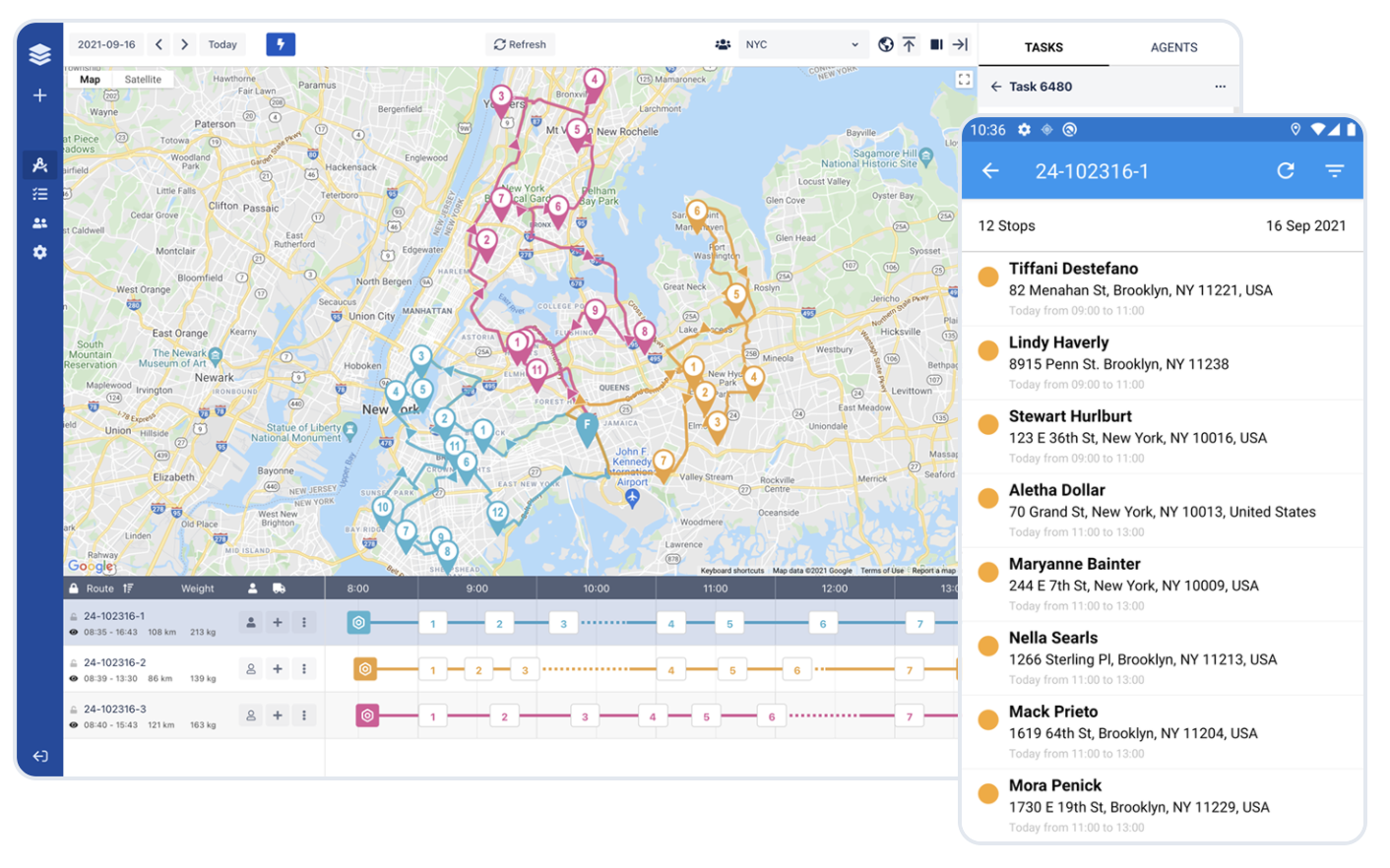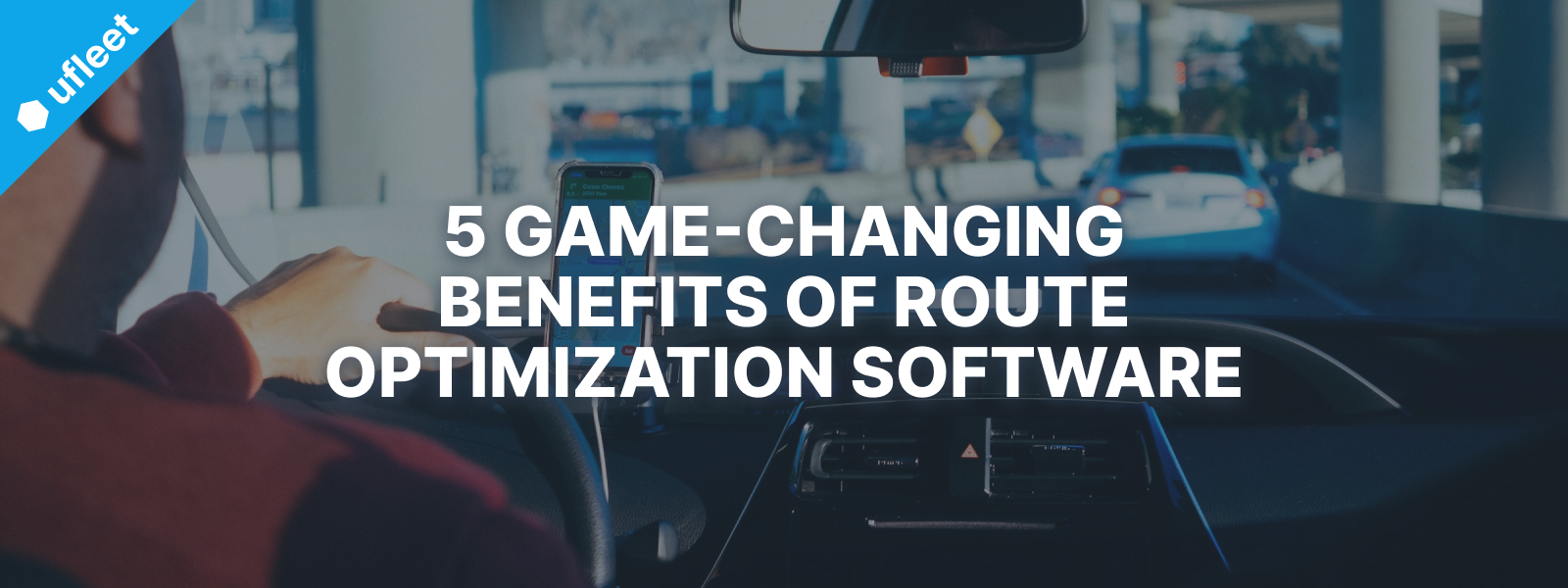From personalized recommendations to inventory management and predictive analytics, AI is reshaping every aspect of the e-commerce experience.
10 AI Trends That Will Revolutionize E-Commerce in 2025
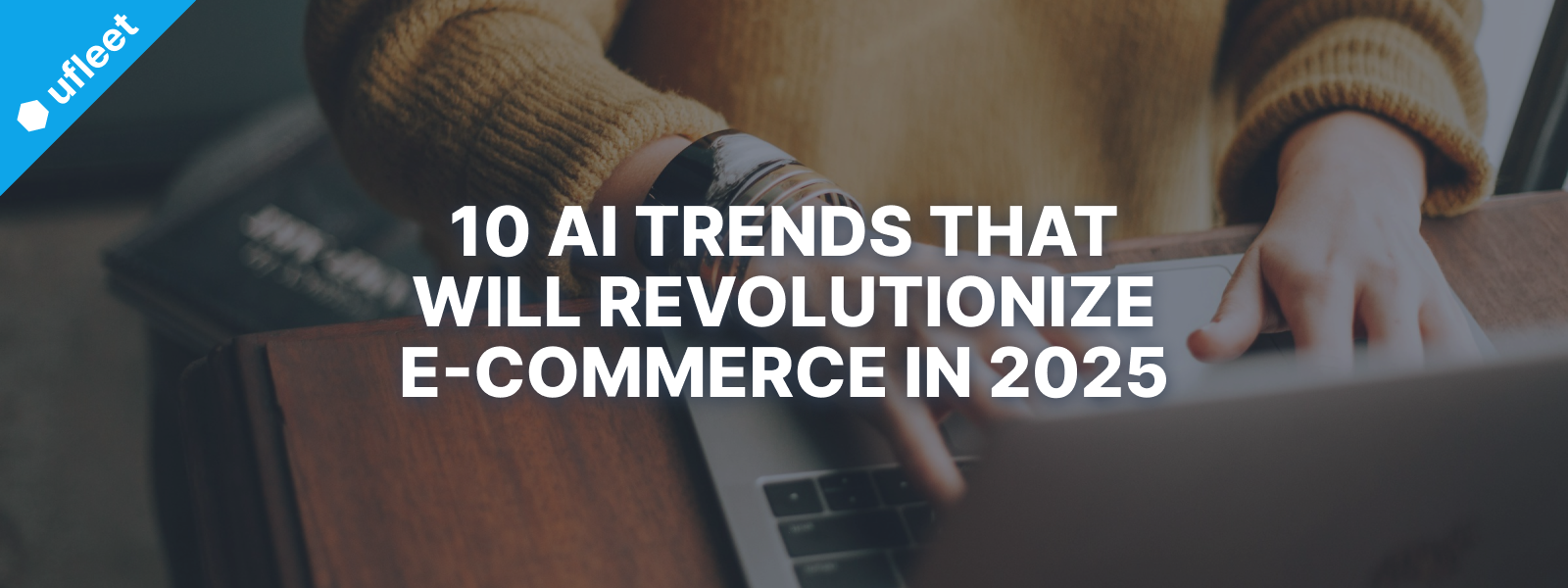
Artificial Intelligence (AI) is becoming a game-changer in almost all industries, and e-commerce is no exception. Tech giants in the sector are already setting the trend and this is just the beginning.
eBay's Chief AI Officer recently said the company is investing heavily in the development of AI tools. He also shared that he views AI's arrival as a "paradigm shift" that "will completely transform e-commerce". Amazon, Shopify, and other online shopping platforms also embrace the trend. For online retailers, leveraging AI technology has become a must rather than a nice-to-have option.
Artificial intelligence has a holistic impact on e-commerce—driving the industry towards providing a seamless, interactive, connected, and absolutely personalized shopping experience. A future-proven experience that enhances customer engagement and satisfaction. As a result, businesses can achieve continuous revenue growth and strong customer loyalty.
To help you stay in the loop of the latest technological advancements, here are the top 10 AI trends in e-commerce for 2025 and beyond. This knowledge will help you understand and implement these trends and achieve better results for your business. At the end of this post, you'll also find an infographic that summarizes the information.
1/ Hyper-personalized recommendations
We've been talking about personalized recommendations for years and in fact, during 2024 holiday shopping 19% of all online orders, worth $229 billion, were highly influenced by it. However, in 2025 we're taking it even further with hyper-personalization. It's a next-level custom experience that goes beyond addressing customers by their names, or simply recommending similar products.
Currently, online stores recommend products based mainly on popular items, previous purchases, or similar colors or types of products. But this method is not efficient enough if you want to create a highly custom experience.
Here's a personal experience to back this up:
When I browse online clothing shops, I often get recommended products that I find nice. I get excited because it looks like something I'd want to buy. I click on the recommendation but eventually, I see my size is not available.
From excitement, I switch to disappointment. And such user experience is extreeeemely poor. Often, I ask myself—why can't the algorithm already know my size from the search filters I used?
With the latest technological advancements, soon it will be the norm. AI is extremely powerful and can be used to create custom shopping experiences based on characteristics such as:
- individual preferences
- browsing history
- preferred filters
- favorite brands
- looks and styles
- product specifics
- demographics
- real-time behavioral data
- ...and more!
According to a recent study by Salesforce, personalized recommendations can make up to 24% of total orders and 26% of total revenue. And while current e-commerce experiences are quite personalized, we can expect even more in the upcoming years. Leading e-commerce platforms, such as Amazon and eBay already leverage AI to analyze user data and we're about to see how their platforms will change.
A curious fact about personalization technology: The reviews in G2’s e-commerce “Personalization Software” category, grew by 159% in the last three years. This surge is another clear indication that e-commerce hyper-personalization is in high demand.
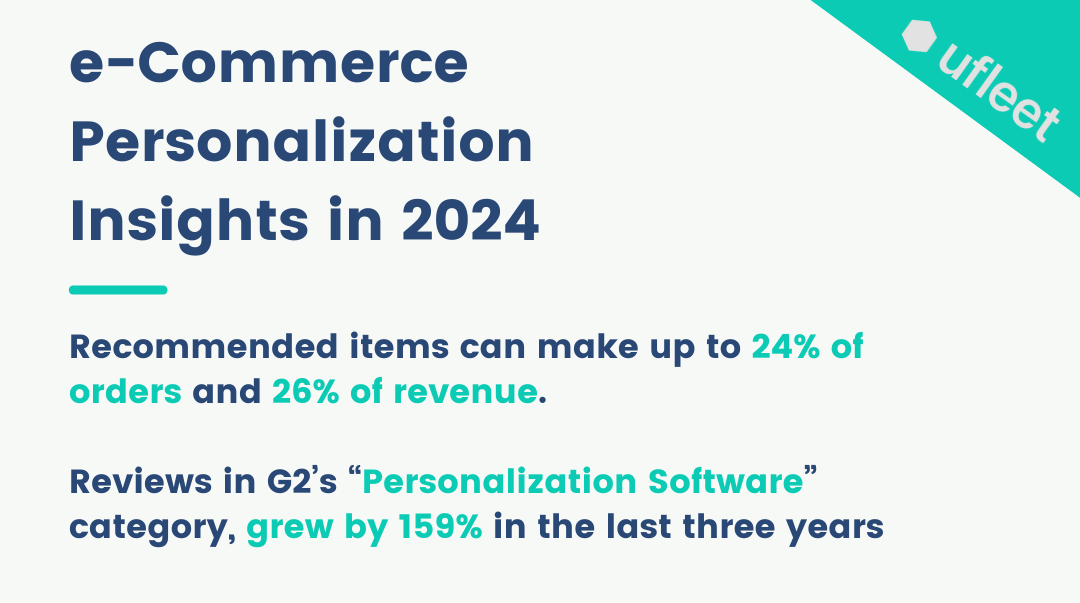
2/ Personalized marketing
Marketing is a key element for the success of every business and the more personalized it is, the better it works. With AI, marketers will be able to produce much more relevant, persuasive, and efficient marketing campaigns by leveraging the power of having a personal attitude towards each customer.
AI algorithms can help marketing professionals create precisely targeted marketing campaigns, tailored messages, and customized offers. For example, AI can send customized email newsletters with recommendations based on applied filters, favorite colors, or browsing behavior. It can also personalize advertisements and promotions displayed on websites or social media platforms.
Not to mention with AI you can even build your own branded marketing tools that can serve as your marketing assistants. One of the most notable ways to so is to use custom GPTs in ChatGPT. These are customizable "chats" or models, made to perform specific tasks and rely on specific information - for instance, your brand voice, target audience, and marketing objectives. The best part - no coding is required!
Marketing personalization can go even further—for instance, a website or e-commerce platform might change, showing returning visitors different products or even a custom layout, based on past data about them.
These next-level personalized experiences should feel as if you communicate to a dedicated sales assistant, who has already built a relationship with you, knows what you like, what's your preferred shopping time, etc.
Such a high level of customization, if done adequately, significantly improves both customer satisfaction and business profits. It also enhances customer loyalty and retention. Here's some data to back this up:
- 91% of customers prefer shopping with brands that provide personalized offers and recommendations according to Accenture.
- 90% of US consumers rate personalized marketing as somewhat to very appealing according to Statista.
- 67% of consumers think that brands need to adjust content to context according to a Study by Adobe.
- 80% of marketers report that personalization has a positive impact on ROI according to Adobe.
3/ Delivery route optimization
Delivery is an essential, and unfortunately extremely expensive, element of the e-commerce journey. Common reasons for the high costs during this last stage of delivery–from the physical store or warehouse to the customer's doorstep—include:
- increased fuel consumption due to poor delivery route planning;
- lots of idle (pay) time for delivery drivers due to bad delivery scheduling;
- a considerable amount of failed deliveries due to a lack of good parcel tracking;
And here's where AI comes in—with the so-called delivery route optimization. It's a process that finds the shortest and fastest delivery routes, eliminates unnecessary time gaps between deliveries, and helps you hit exact delivery time slots.
It takes into account parameters such as destination, time window, delivery priority, vehicle type and volume, traffic, and more, to pick the most optimal route. An efficient optimization process can decrease delivery costs by up to 30%.
3PL delivery services like FedEx or UPS usually develop and use their own route optimization systems. But even businesses that manage deliveries in-house can benefit from route optimization as there are plenty of off-the-shelf software solutions.
Alongside the cost reduction benefits, route optimization also leads to:
- improved customer experience
- reduced carbon footprint
- ability to make data-driven decisions
To get an idea of what route optimization software looks like, see Ufleet's video below:
4/ Visual search
Visual search has huge benefits for retailers and consumers. Retailers like Target, ASOS, and IKEA are already using this technology to increase sales and improve customer experience.
Visual search has a simple definition:
It’s any search made with a photo, screenshot, or other image instead of a text-based query. This innovative technology makes online shopping more convenient, accessible, and efficient.
Customers can quickly find products without having to describe them in words. This ultimately shortens the path from search to conversion and improves the search journey.
It also connects the experiences customers have in online and physical stores. For example, a customer takes a photo of a product they liked in a physical store. They can later use the photo to find the product online.
To tap into this AI technology, retailers need to establish their business on visual search engines. Here are some of the most popular ones:
- Google Lens
- Bing Visual Search
- Pinterest Lens
- Amazon camera search

5/ Fraud detection
As the e-commerce industry continues to grow, so does the threat of fraud and cyberattacks. That’s why AI-powered fraud detection is one of the most cherished e-commerce AI trends lately.
AI fraud detection solutions use vast amounts of data to identify suspicious activities in online transactions. They can not only detect but also stop fraud threats even before they happen.
They take into account various factors, such as:
- customer behaviour
- location
- payment methods
- order history
- transaction frequency
This technology enables e-commerce businesses to reduce the risk of huge financial losses. Juniper Research says AI-powered fraud detection will save businesses $11 billion annually by the end of 2024.
AI-powered systems also protect customer data which is becoming paramount for customers. This is true especially for Gen Z who’ll soon become the majority of consumers. They point to data protection and security as one of their top priorities.
6/ Pricing optimization
Pricing a product is an important but often complex task. The best price usually depends on many factors such as:
- manufacturing costs
- competitors’ prices
- customer acquisition costs
- supply and demand
Doing your research and calculations is key. What’s tricky, though, is that all these factors are subject to fluctuations.
AI-powered tools help e-commerce businesses detect such fluctuations pretty well. By analyzing huge amounts of data, they can optimize the pricing strategy for maximum profitability.
We call this practice ‘dynamic pricing’. It allows businesses to adjust prices promptly without too much hassle. It helps them remain competitive in a dynamic market, increase sales, and maximize revenue.
Amazon is a good example of implementing a dynamic pricing strategy. The company uses AI to analyze the market and quickly adapt to changes.
For instance, when a competitor offers discounts, Amazon alters its prices. Such changes might be present up to 2.5 million times a day!
7/ Virtual assistants and chatbots
Virtual assistants like Siri, Alexa, and Google Assistant made voice search a part of our daily lives.
These intelligent machines can handle and resolve customer queries in real-time. They enable users to interact naturally, search for products, and even complete purchases only through voice commands.
The result is improved customer service efficiency and reduced response times. The technology is not new but lately, it improved a looooot.
Chatbots too make a significant impact in e-commerce. They handle customer inquiries, provide product recommendations, and assist with order tracking and returns.
In most cases, they are quick and efficient in handling basic requests and are available 24/7.
Both technologies are especially useful on mobile devices.
8/ Inventory and supply chain optimization
AI is also transforming how e-commerce businesses manage their inventory, and optimize their supply chain and delivery process. AI algorithms can analyze historical data, demand patterns, and market trends to make accurate sales forecasts.
This helps businesses optimize their inventory levels and ensure they have enough stock to meet the demand. In addition, they can minimize excess inventory and associated costs. Both are common challenge for e-commerce retailers, especially during intense events such as Black Friday when poor inventory management is one of the biggest mistakes e-commerce businesses make.
A great example here is JD logistics. During a Black Friday campaign, the company relied on AI algorithms to forecast sales and prepare inventory. This way, JD logistics managed to handle successfully the 70% increase in overseas outbound orders. The accuracy rate of this operation exceeded 95%!
Furthermore, AI can improve supply chain efficiency. It can do so by automating various tasks, such as order tracking, warehouse management, and delivery logistics.
9/ Predictive analytics
Predictive analytics, powered by AI, helps e-commerce businesses anticipate customer needs and preferences.
AI algorithms can make accurate predictions about future trends, customer behavior, and market demands. This allows businesses to make informed decisions regarding product development, inventory management, and marketing strategies.
For instance, an online clothing retailer can use predictive analytics to forecast stock availability. They can tap into which styles, colors, or sizes will be in demand for the upcoming season. Ultimately, this helps to make sure they have the right products available.
This proactive approach gives businesses a competitive advantage, reduces wastage, and improves overall customer satisfaction.
10/ Content creation
Another area where AI steps in is media or content creation. It includes the creation of product images, videos, descriptions, or any other kind of content, with the help of AI.
For example, Shopify has its own product description generator. It helps retailers create high-quality, compelling product descriptions in seconds.
Mockups are not new but the new AI advancements businesses have almost endless variations for visual product presentation.
Generating content with AI requires investing time and effort to learn the different tools. However, it pays off in the long run.
Ultimately, AI-generated content opens up many possibilities and saves a huge amount of time and resources.

Infographic: AI trends in e-commerce
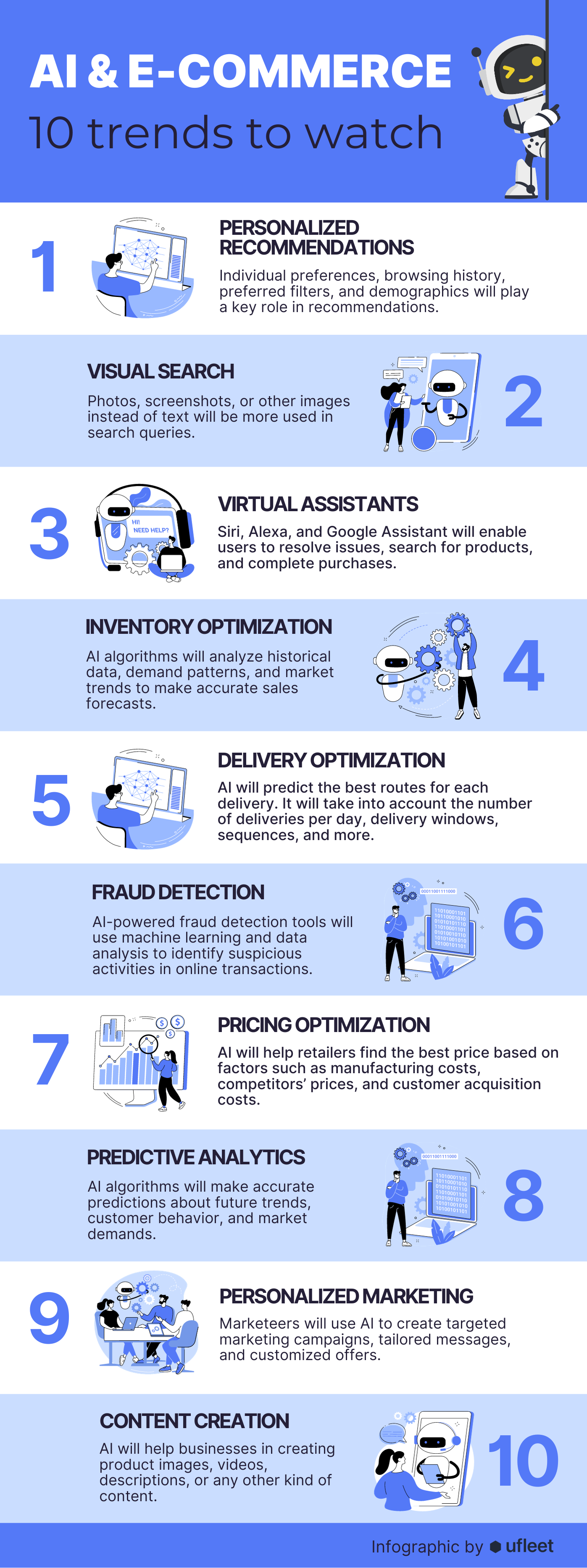
Key takeaways
Artificial Intelligence is revolutionizing the e-commerce industry, offering a wide range of benefits for both businesses and customers.
From personalized experiences and virtual assistants to inventory management and predictive analytics, AI is reshaping every aspect of the e-commerce experience. And we can expect even more innovation and advancements in the upcoming years. They will enhance the efficiency, convenience, and personalized nature of online shopping.
Embracing AI in e-commerce is no longer an option but a necessity. It helps businesses stay ahead of the competition, provide exceptional customer experiences, and unlock new growth opportunities.
If you found this post helpful and want to receive similar insights straight to your inbox, hit the subscribe button below.
Thanks for reading!
Never miss a post
You may also like…
You too can reduce costs and improve efficiency with Ufleet
- plan and optimize delivery routes
- manage and empower drivers
- enhance customer experience
- make data-driven business decisions
We’d love to learn about your challenges.
Leave your email and we’ll get back to you.
